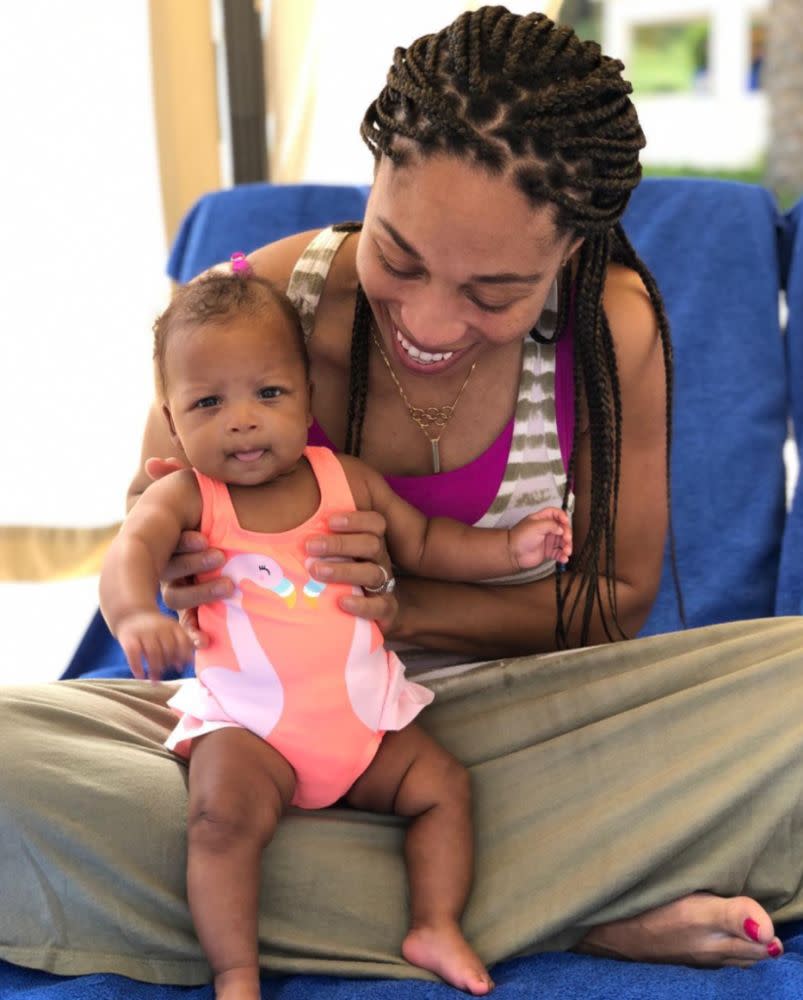Allyson Felix Denounces Nike For Failing to Support Athletes During Pregnancy

Olympic sprinter Allyson Felix doesn’t want to be punished for becoming a mother.
The six-time Olympic gold medalist came forward earlier this week with an op-ed in The New York Times about her experience as a Nike athlete during her pregnancy. Felix was inspired to share her story after two of her former Nike teammates, Olympian runners Alysia Monta?o and Kara Goucher, broke their silence on the brand’s maltreatment of their pregnant female athletes.
“They told stories we athletes know are true, but have been too scared to tell publicly,” Felix wrote of Monta?o and Goucher in her op-ed. “If we have children, we risk pay cuts from our sponsors during pregnancy and afterward.”

She continued, “It’s one example of a sports industry where the rules are still mostly made for and by men.”
The decorated athlete shared that she decided to start a family in 2018, even though pregnancy could be the “kiss of death” in the sports industry. During the time of her decision, she was in the middle of negotiating her contract with Nike—a sponsorship she said she chose because of the values she thought the company had.
“One of the deciding factors for me in signing with Nike nearly a decade ago was what I thought were Nike’s core principles. I could have signed elsewhere for more money,” the sprinter wrote. “But when I met with the company’s leadership in 2010, one woman told me about a Nike-sponsored initiative called the Girl Effect that promoted adolescent girls as the key to improving societies around the globe. By joining Nike, she said, I could help empower women. She told me Nike believed in women and girls, and I believed her. Which is part of why my recent experience has been so heartbreaking.”
my motivation is different now?
A post shared by Allyson Felix (@af85) on May 22, 2019 at 9:54am PDT
After giving birth and having to undergo an emergency C-section at 32 weeks because of severe pre-eclampsia that put her and her baby’s life in jeopardy, she claimed that Nike pressured her to return to training as soon as possible. On top of that, they wanted to pay her 70 percent less than before.
“If that’s what they think I’m worth now, I accept that,” she admitted. “What I’m not willing to accept is the enduring status quo around maternity. I asked Nike to contractually guarantee that I wouldn’t be punished if I didn’t perform at my best in the months surrounding childbirth. I wanted to set a new standard. If I, one of Nike’s most widely marketed athletes, couldn’t secure these protections, who could?”
RELATED VIDEO: U.S. Women’s Soccer Team: ‘#SheInspiresMe’
Nike, however, declined to provide Felix with that guarantee.
“My disappointment is not just with Nike, but with how the sports apparel industry at large treats female athletes,” she explained in the op-ed. “This isn’t just about pregnancy. We may stand behind the brands we endorse, but we also need to hold them accountable when they are marketing us to appeal to the next generation of athletes and consumers.”
A few days after Monta?o and Goucher came forward, Nike announced it would change its maternity policy, according to The Wall Street Journal. Felix applauded them for taking a step towards change.
The star athlete concluded, “I look forward to specifics, from Nike and the rest of the industry who has yet to commit to contractually protecting women.”
